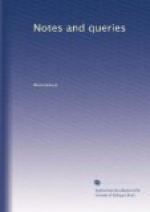46 Nicht das jemand den Vater
habe gesehen ohne der vom Vater ist, der
hat den Vater gesehen.
Tyndale, 1526.
The iewes murmured att itt, be cause he sayde: I am thatt breed which is come doune from heven. And they sayde: Is nott this Jesus the sonne of Joseph, whose father, and mother we knowe? How ys yt then thatt he sayeth, I came doune from heven? Jesus answered and sayde vnto them: Murmur not betwene youre selves. No man can come to me except my father which hath sent me, drawe hym. And y will rayse hym vp at the last daye. Hit is written in the prophetes: And they shall all be taught of God. Every man which hath herde, and lerned of the father, commeth unto me, not that eny man hath sene the father, save he which is off God. The same hath sene the father.
Authorized Version.
41 The Jews then murmured
at him, because he said, I am the bread which
came down from heaven.
42 And they said, Is not this
Jesus, the son of Joseph, whose father
and mother we know? how is
it then that he saith, I came down from
heaven?
43 Jesus therefore answered
and said unto them, Murmur not among
yourselves.
44 No man can come to me,
except the Father which hath sent me draw
him: and I will raise
him up at the last day.
45 It is written in the prophets,
And they shall be all taught of God.
Every man therefore that hath
heard, and hath learned of the Father,
cometh unto me.
46 Not that any man hath seen
the Father, save he which is of God, he
hath seen the Father.
ECHO.
* * * * *
ANSWER TO COWLEY.
On the fly-leaf of a copy of Cowley’s Works (London, 1668), I find the following lines:—
AN ANSWER TO DRINKING (PAGE 32.).
“The thirsty earth, when one would
think
Her dusty throat required more drink,
Wets but her lips, and parts the showers
Among her thousand plants and flowers:
Those take their small and stinted size,
Not drunkard-like, to fall, but rise.
The sober sea observes her tide
Even by the drunken sailor’s side;
The roaring rivers pressing high
Seek to get in her company;
She, rising, seems to take the cup,
But other rivers drink all up.
The sun, and who dare him disgrace
With drink, that keeps his steady pace,
Baits at the sea, and keeps good hours.
The moon and stars, and mighty powers,
Drink not, but spill that on the floor
The sun drew up the day before,
And charitable dews bestow
On herbs that die for thirst below.
Then drink no more, then let that die
That would the drunkard kill, for why
Shall all things live by rule but I,
Thou man of morals, tell me why?”




